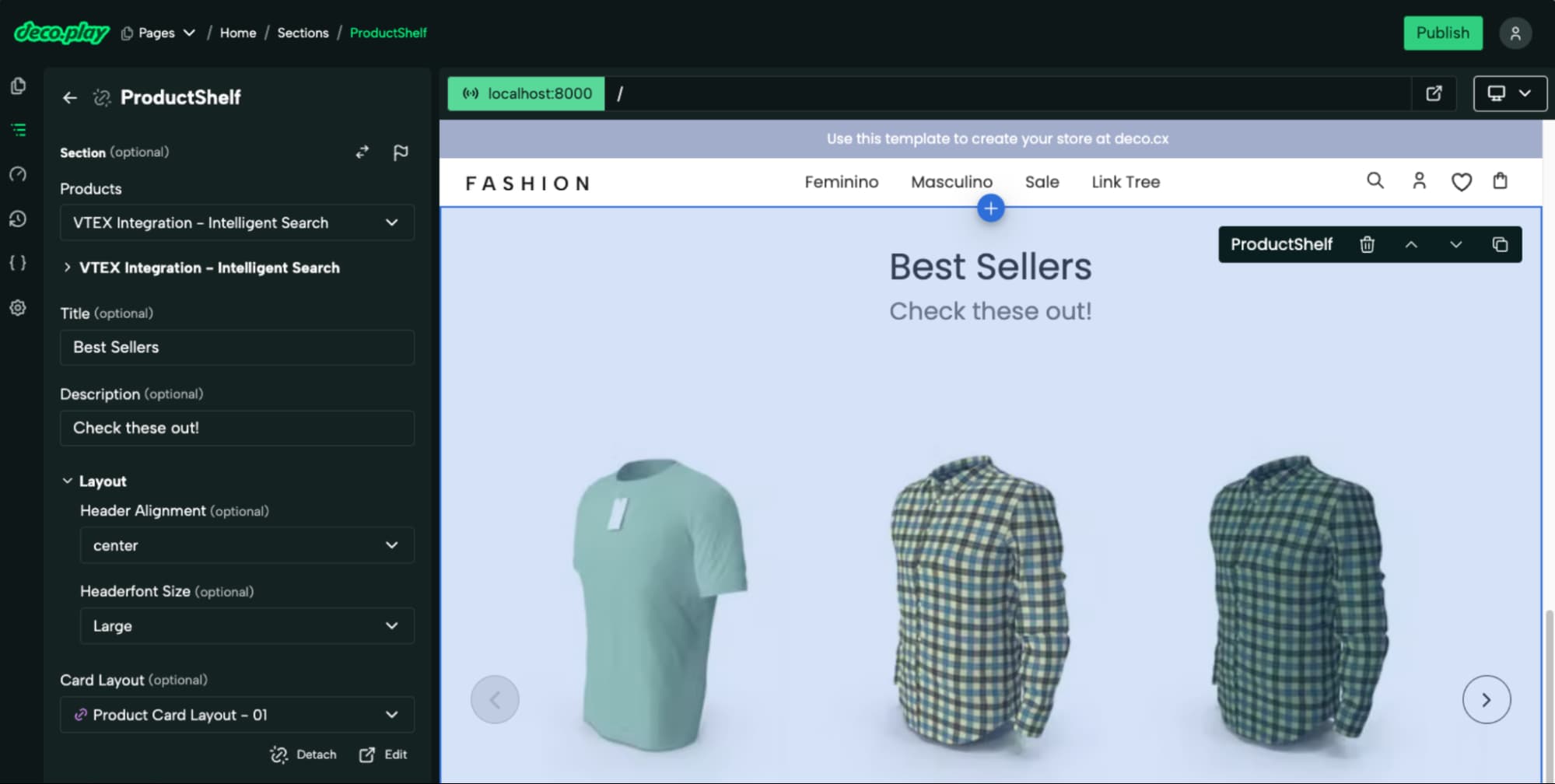How Deco.cx, Brazil's top frontend platform, uses Deno Subhosting to move fast and serve their clients' storefronts even faster
It only took Guilherme Rodrigues, Rafael Crespo, and Luciano Júnior a year for their fast growing innovative frontend platform, Deco.cx, to include some of Brazil’s top brands. But their quick success is not a surprise for co-founder Guilherme, who describes Deco.cx as “the first and last web IDE you’ll ever need”. According to him, their clients rave about their “amazing developer experience”, “instant deployments”, and “fast page loads”, where a 100 millisecond improvement can increase conversion rates by 8.4%. These glowing reviews are largely attributed to building on an all Deno stack.

However, prior to using Deno, the co-founders struggled to find the right tech to realize their vision of making it as easy as possible for developers to build for the web, without sacrificing any end-user performance.
“Node is getting too complex”
While working together at a previous company, Guilherme, Luciano, and Rafael realized that building e-commerce frontends was getting more and more complicated. “We were held hostage by the tools there,” Guilherme joked, referring not just to the tooling available at their employer, but also in general in the JavaScript community. “Everything was JavaScript-heavy SPA architecture with React or React-like framework, which just isn’t suited for content heavy web experiences such as e-commerce.”
Not only do the existing frontend frameworks suffer from a performance perspective, but they are also growing in complexity. “Developing today requires knowing all of these frameworks,” says Guilherme. “The next million developers are not even studying programming yet — everything needs to be simpler.”
Together, they knew there was a huge opportunity at the intersection of providing a performant, JavaScript-light website, with an intuitive, simple development experience. They also focused on e-commerce to start, since it’s the ultimate test of developer experience and performance, where each delay has a tangible impact on revenue. “E-commerce is especially tricky, since the lower margins means the solutions must be simple and cost effective,” added Luciano.
“Deno helps us — and our customers — move way faster”
Guilherme started following the Deno project since its inception in 2019, and believed this modern, “batteries included” approach is the future of programming. But their employer resisted adopting it, citing it was “too cutting edge”. Despite this setback, the co-founders believed so strongly in Deno’s vision — making programming simpler with zero-config, a built-in toolchain, and native support for TypeScript and web standards APIs — that they left to start a new company built on Deno.
They also became heavy users of Fresh, a next-gen
Deno-native full stack web framework that sends zero JavaScript to the client,
for its modern developer experience and snappy performance. They embraced the
modern simplicity of Deno so much that, not only did they insist on using Deno
and Fresh for everything due to greater compounded gains with a singular stack,
but they also built deco, an open-source
visual editor for Fresh and Deno apps.
“Building with Deno helped us move faster,” Luciano says. “We built everything in one year.” That simplicity also led to an incredible developer experience for Deco’s users. For example, Zee.Dog, a high quality pet store with 10 in-house developers, raved about how simple it was to customize and iterate on their store based on the simple Deno-first stack. “Our clients love the fast deployments and the ease of being able to rollback to a previous deployment,” added Guilherme.

But the technology that really cemented Deno as a core part of Deco.cx stack was Deno Deploy, Deno’s multi-tenant JavaScript V8 isolate platform. Deploy made deploying JavaScript to the edge fast and simple for each of Deco’s current customers, which led to massive gains in conversion rates and revenue. Zee.Dog alone saw 5x faster page load speeds and a 30% jump in conversion rates.
The future of Deco.cx
Despite being around for a year and having already onboarded some of Brazil’s biggest brands, Deco.cx plans to expand beyond e-commerce. “We want to be the web editor where you don’t have to choose between full code and no-code,” Guilherme says. “Deno has given us the speed and flexibility to pursue these big ideas.”
Want to leverage Deno Deploy’s fast, scalable multi-tenant infrastructure to run your users’ untrusted code? Check out Deno Subhosting.
